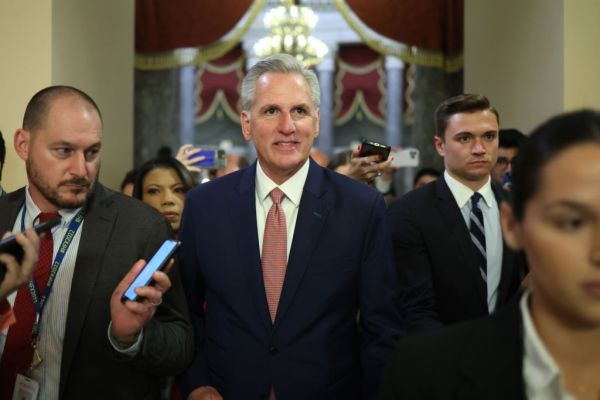Hello and happy Saturday. This edition of the Dispatch Weekly is coming to you from Athens, Ohio, where I am visiting our son for the weekend. He’s a freshman at Ohio University, and I’m waxing a little nostalgic because it just so happens that it’s my alma mater. His dorm is close to the dorms I lived in my first two years, and so now he realizes I wasn’t joking when I said we really did walk uphill both ways to class.
I’ve seen a range of reactions the last few years as friends and acquaintances went through the roller coaster of senior year and graduation and sending their kids away to college. It made me wonder how we would feel when the time came. And as independent as our son is, it still felt weird when we dropped him off. Had it really been that long since he was a toddler playing with trains, since he’d played tee-ball and learned to ride a bike, since he let me read the entire Harry Potter series to him? It didn’t feel like it.
And yet, after getting used to the house being a little quieter and getting over losing an on-call chauffeur who happily gave his brothers rides to practices or friends’ houses, I was okay with him being a few hours away. I think I figured out why this weekend.
We’ve raised our kids in the Cincinnati area, but I grew up in a small town in northeast Ohio. More generations than I can remember, on both sides of my family, had done the same. I went to the same elementary school as my mom, attended dances at the same youth center where she’d been a lifeguard. When my parents told stories about their childhoods, I could picture them because I knew the streets and neighborhoods they were talking about.
We’ve come to love Cincinnati, and all of my family has settled there. My kids are around people who love them, and that’s the most important thing. But the common thread of shared experiences is missing. If our son complains about his Spanish teacher, I can’t say “Oh yeah, she was really tough when I had her.” If the high school football team is having a good season, I can’t say, “Well, you should have been there the year we went 10-0 and made the playoffs and your grandparents helped take down the goalposts.” (True story, by the way.)
While I lived in Athens for only four years, it still feels like home. It’s not entirely the same. There are some fancy new buildings on campus. The Kinko’s where I printed off dozens of term papers and class presentations is now a frozen custard shop. And the building that housed the bar that we went to for Quarter Beer Night is now home to the ROTC program—so let’s just say our son, a cadet, is creating very different memories there than I did.
But, at least for my son and I, we have those shared experiences I often wish we could have given our kids when they were little. When he tells me stories about his day, I can picture the scene. When I wonder what he’s doing on a Saturday night, I can guess which establishments he might have ended up at. It’s Sibs Weekend in Athens, and I brought our 16-year-old along with me. We have no idea where he’ll end up going to college: He likes the idea of going somewhere in the South (which I’m sure has everything to do with the weather and nothing to do with tailgate parties), and we’ll do some campus tours this summer. But I wouldn’t be sad if he ended up here.
Thanks for indulging me, and now I’ll let you get to the news of the week.
Here we go again. There’s been another terrible act of police brutality, and we’re hearing many of the same arguments that we hear after such tragedies. It rankles Jonah when people make misleading statements about the nature of race relations, crime, and police brutality in the United States. He debunks a few claims quickly, then focuses most of his attention on debunking the myth that the institution of policing is a direct descendant of antebellum slave patrols that rounded up and returned escaped slaves to their owners. “The oldest policing institutions are probably forgotten to history, because the very idea of a polis, city state, or society more advanced than a tribe of hunter-gatherers is bound up in the idea of providing security,” he writes. “Still, the Egyptians had police 3,000 years ago. The Babylonian paqūdu were patrolling the streets of Uruk before Jesus was born. The oldest ‘modern’ police in Europe are the York Minster constables, who were founded in 1275.”
He’s not running for president—yet—but Mike Pompeo does have a book out, he’s raising money and meeting with GOP bigwigs, and he talked to our own David M. Drucker. Pompeo told David that he would not be dissuaded from running because of any loyalty to Donald Trump, who tapped him to lead the CIA and then made him secretary of state. “It is not remotely disloyal to present your argument, your case to the American people for anyone—someone who worked on my team or my staff, or who I promoted or gave a job to. Nor, someone who gave me an opportunity as well,” Pompeo said. “Those of us who get into the race, we’ll all go compete, and the American people will sort it out.” Pompeo also discussed threats on his life made by Iran, addressed the threat posed by North Korea, and said if he were to become president, he would recognize Taiwan as an independent nation.
In Boiling Frogs (🔒), Nick takes a break from his usual pessimism to wax hopefully—kind of—about the looming debt ceiling debate. He kicks things off by acknowledging that some Republicans won’t vote to increase the debt ceiling and keep the government out of default no matter what, but that there are plenty of signs that Congress will eventually do what has to be done. He notes that representatives have to keep their constituents in mind, and that most voters don’t want default, that Republicans “are keenly aware of their own dysfunction and the risks it presents,” and that no one wants to be blamed. “My guess is that most House Republicans understand already that any concessions they receive from the White House will be token, more cosmetic than meaningful in reducing the debt,” he writes. “It can’t be otherwise, frankly, since entitlement reform is the only path to fiscal stability and Republicans themselves have ruled that out. The more modest the GOP’s proposal is, though, the more difficult it’ll be for Democrats to say no and opt for an economic meltdown instead.”
And here’s the best of the rest:
- Ukraine has asked for F-16 fighter jets to help in its fight against Russia, and the Biden administration’s initial response was a big “no.” Given how past requests from Ukraine were handled, was that really just a “not yet”? Charlotte reports.
- In Capitolism (🔒), Scott Lincicome discusses how criminal justice reform measures like expunging criminal records if convicts don’t reoffend and limiting occupational licensing boards’ ability to ban people with criminal records could both reduce recidivism and help boost workforce participation.
- While Florida Gov. Ron DeSantis hasn’t declared his candidacy for 2024, and most certainly won’t until the state’s legislative session ends, that hasn’t stopped Donald Trump from attacking him. In The Sweep (🔒), Sarah explains why that is working in DeSantis’ favor.
- Many, many people on both sides of the political aisle misunderstand—or wilfully pretend to misunderstand—the nature of Section 230, the law that shields online platforms from liability for user-generated content. Unfortunately, Joe Biden is one of them. Paul Matsko calls him out for it.
- The pods! The pods! To celebrate the 300th episode of Advisory Opinions, David French and Sarah discuss some awful attempts to quell free speech. Where to go if you want a mix of 2024 analysis, commentary on the various committee assignment kerfuffles in the House, and an update on whatever the heck is going on at the Dallas Zoo? The Dispatch Podcast, of course. John Podhoretz joins Jonah on The Remnant and they talk about … nearly everything. How should Christians deal with ChatGPT? On Good Faith, Curtis Chang sits down with his friend, bestselling author Andy Crouch, to talk about how “technology paints a false vision of human flourishing.”









Please note that we at The Dispatch hold ourselves, our work, and our commenters to a higher standard than other places on the internet. We welcome comments that foster genuine debate or discussion—including comments critical of us or our work—but responses that include ad hominem attacks on fellow Dispatch members or are intended to stoke fear and anger may be moderated.
You are currently using a limited time guest pass and do not have access to commenting. Consider subscribing to join the conversation.
With your membership, you only have the ability to comment on The Morning Dispatch articles. Consider upgrading to join the conversation everywhere.